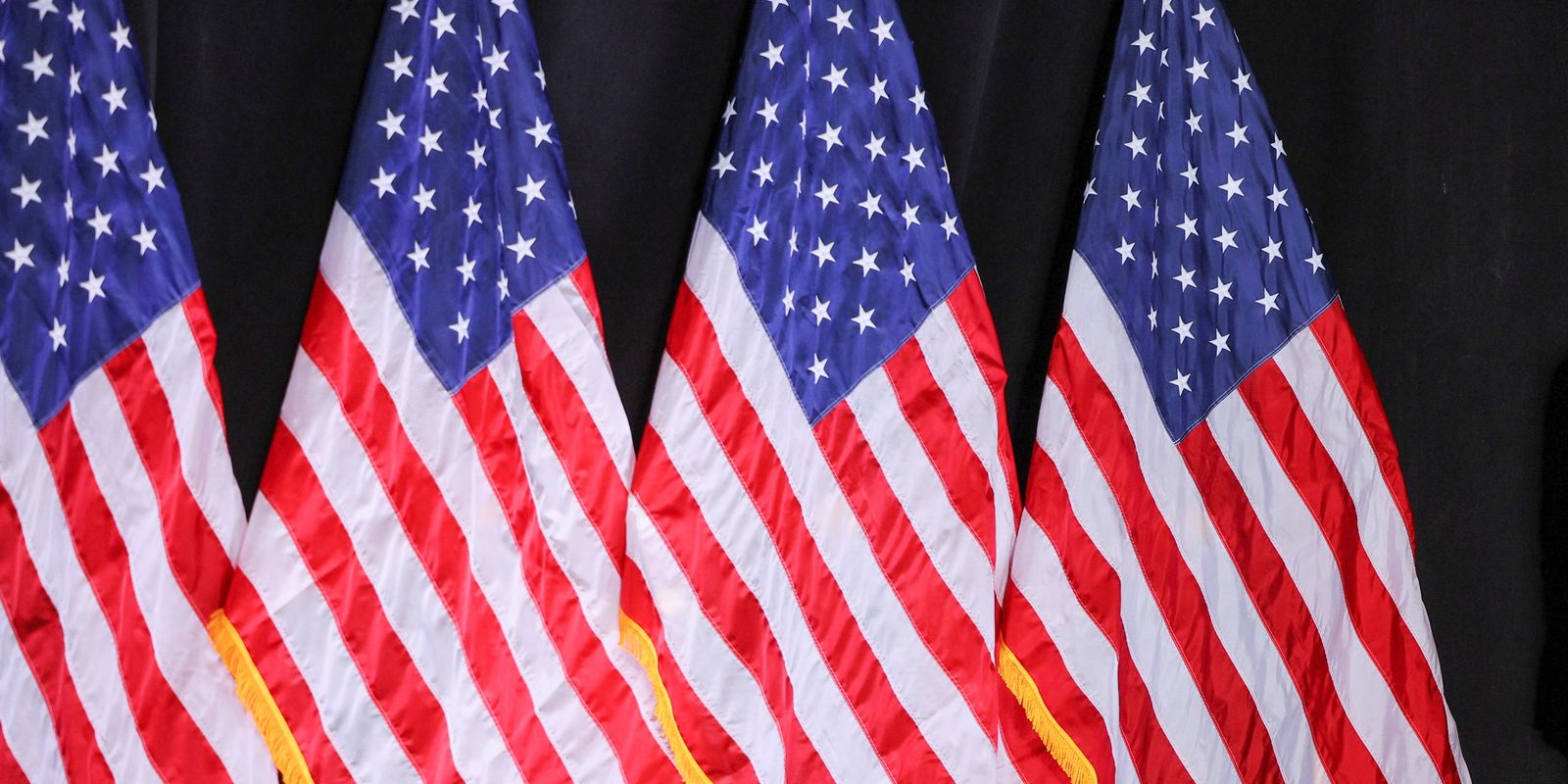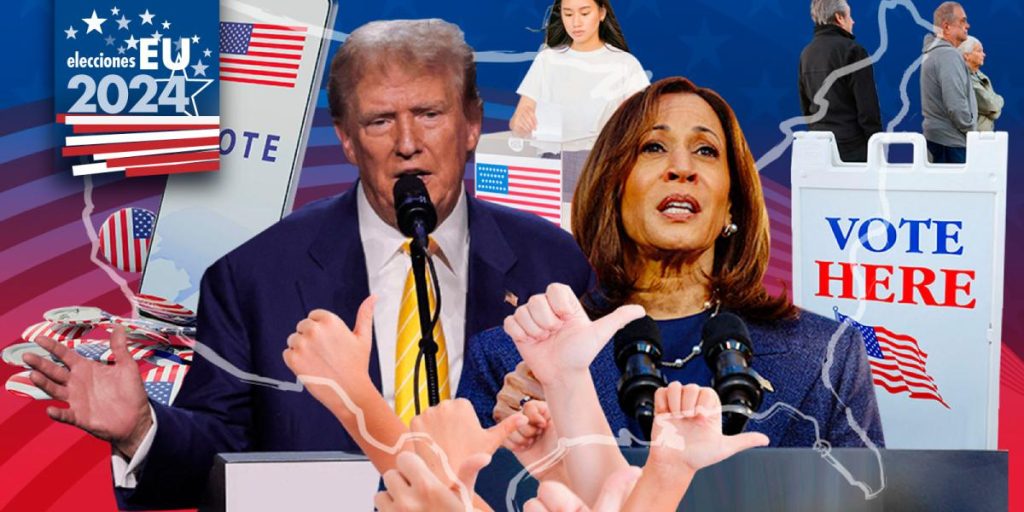The consequences of the election that will define, this Tuesday (5), who will be the future president of the United States (USA) go far beyond North American borders, such is the influence that the largest military power in the world has on the external scene.
Experts consulted by Brazil Agency assess that such influence is not restricted to current conflict areas in Europe and the Middle East. Brazil, Latin America and China are also anxiously awaiting the outcome of the dispute between Democrat Kamala Harris, current vice president of the USA, and Republican Donald Trump, who presided from 2017 to 2021, to outline, more precisely, their plans. strategic in the relationship with the next North American ruler.
The researcher at the National Institute of Studies on the USA (Ineu) and professor at the Institute of International Relations at the University of Brasília (UnB), Roberto Goulart Menezes, explains that, for Brazil, more significant effects could occur if the winner of the elections is the republican.
Trump Risk
“Trump, if elected, will be an extreme right-wing president who will tend to reinforce ties and links with the extreme right in Latin American countries. Something worrying, as it hasn’t happened in about 15 years, is the risk of him promoting, in the region, candidacies that are contrary to democracy, both in South America and in Latin America in general”, he told Brazil Agency the researcher, who has a doctorate in political science from the University of São Paulo (USP).
Professor of the Department of History at UnB, Virgílio Caixeta Arraes assesses that, regardless of who wins the election, the relationship with Brazil will be the same: “we will have secondary importance to the USA”, said Arraes. “With the exception of a few countries in Latin America and the Caribbean, such as Mexico, Venezuela, Colombia or Cuba, for different reasons, Washington’s attention to the region is less than that of other locations on the planet, such as the Middle East or Southeast Asia .”
China
For Goulart Menezes, from the National Institute of Studies on the USA, it is possible that the United States will put greater pressure on South American port countries, in order to hinder the entry of Chinese products and, consequently, the expansion of Chinese political influence in the region.
The tendency is that, regardless of who wins, the policy of pressure on China will be maintained, said the professor.
In this sense, given China’s advances in Latin America and, especially, in South America, the USA has considered that power’s presence in the region to be risky. Therefore, it will tend to put pressure on port countries such as Brazil and Peru, in an attempt to alienate the Chinese commercially and politically”, said the researcher.
Security rhetoric
According to Goulart Menezes, all these issues – economic, commercial, political and even environmental – boil down to the same argumentative thesis on the part of North Americans: risks to their own security.
“The issue that most mobilizes the US is still security. Especially because they tend to take topics that have nothing to do with security and try to create an association. This is the case, for example, of migration and drugs. When approaching issues in this way, the US always holds other governments responsible and, in some way, says that they pose risks to the country’s security”, argued Menezes.
“In the case of the relationship with Brazil, which has environmental issues as a key theme of its policies, this also becomes a security issue. If Trump wins, he will resume his denialist rhetoric, associating the environmental agenda with the economy. Therefore, security for the USA. Take a good look: he [Trump] does not treat the environmental issue as a matter of survival or climate crisis, but as a means to increase the economic potential of the USA”, he added.
In the assessment of historian Caixeta Arraes, China is a thorn in the side of the USA. The way of dealing with the situation, both by the Democratic candidate Kamala and the Republican Trump, is a matter of intensity to be applied to each situation to be faced.
“With China, despite the two countries experiencing half a century of rapprochement, the picture is not encouraging because Beijing’s advance in the international market and in regional geopolitics bother Washington, given allies like Tokyo, or Seoul, or Taipei, for example. ”, said the historian.
“However, neither party actually has an effective policy to contain China’s growth. Sometimes we appeal to human rights, sometimes to environmental issues, or even to international trade rules, or to military tension. The difference between the two parties is in the calibration of the power components available”, said the historian.
Wars
Two conflicts draw the most attention in American foreign policy: that of Israel, a strategic partner of the USA, against Palestine and Lebanon; and the one between Russia and Ukraine.
“In the Middle East, US policy is state policy. Not from the government. Therefore, no general line will change, regardless of the winning political party”, highlighted Caixeta Arraes.
Goulart Menezes has a similar opinion about the conflict in the Middle East. According to the researcher, in relation to this conflict there is no difference between Republicans and Democrats. “American support for Israel is unconditional,” he emphasized.
“In May 1948, Israel declared itself a state. The United States immediately recognizes it. Since then, the Palestinians have been losing territories. I don’t say this from an ideological point of view. Just compare the maps then and now”, said the professor.
He explained that, currently, what is different is the fact that Israel is experiencing a moment in which its margin of autonomy in relation to the USA is greater. “Israel has always been dependent on weapons supplies from the USA. By providing this support, the US was able to direct certain actions by Israel. Currently, they still have some control, but in part, it no longer has any effect”, said Menezes.
The researcher added that this loss, albeit subtle, of influence over the military actions of its strategic partner is perceived even amid US threats to suspend aid in the event of an Israeli attack on Palestinian and Lebanese civilians. “We see that, even so, Israeli troops continue to carry out their attacks, and that US support in the UN Security Council [Organização das Nações Unidas] remains.”
Menezes cited as an example the North American veto of the peace proposal presented by Brazil for the conflict. “It was a very good proposal that even received a sign of support from England and France, albeit in the form of abstention. “What we see is the US continuing to send weapons and money for military support to Israel. This support is due to the historical relationship between the two countries, as well as the lobby Israel in American politics and elections. It is worth remembering that there is a very strong presence of Jews of different nationalities in the financial system”, explained Menezes.
There is, therefore, “a certain pressure through economic power”, added the professor, remembering that, on the other hand, there are also many Jews, both in the USA and in other countries, with a critical position in relation to Israel’s stance in this and in other conflicts. “This pressure is increasing in the USA.”
Russia x Ukraine
As for the war between Russia and Ukraine, expectations are different between Republicans and Democrats. “If Trump returns to the White House, foreign policy could change in Eastern Europe. The Republican aspirant said that, if he wins, he will gradually reduce financial and military aid and, consequently, political inclination. In case of victory for the Democrat, support for Ukraine will remain at the same level”, stated Caixeta Arraes.
In Menezes’ assessment, if Trump wins the dispute, the Republican’s stance in this conflict will be opposite to that of the Democrats. “He has already indicated the withdrawal of support for Ukraine. We don’t know if it will be gradual or abrupt, but we know that, as a result, the war will take a different course.”

















